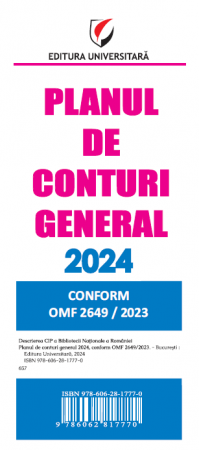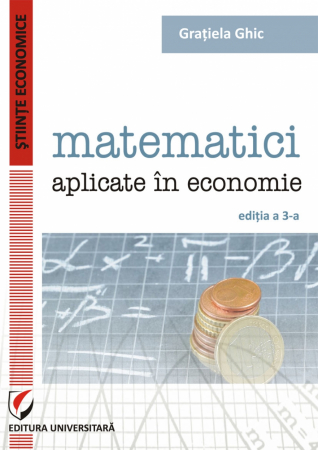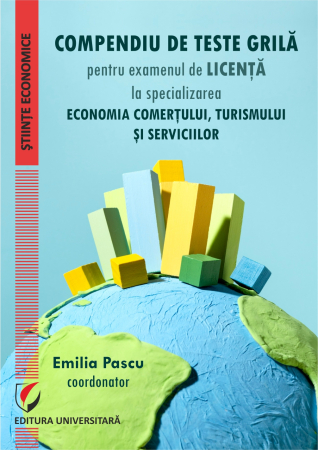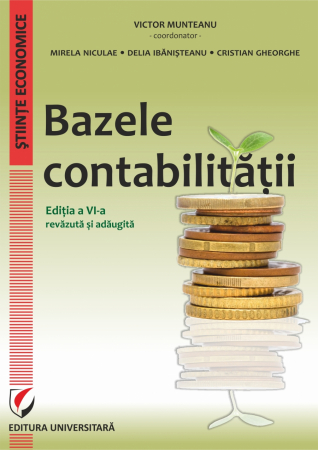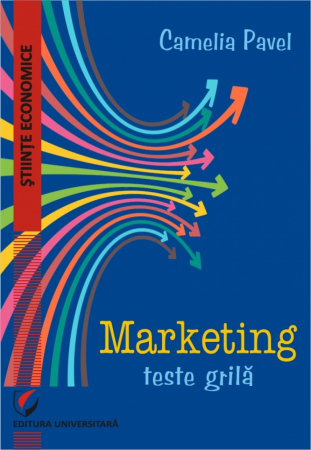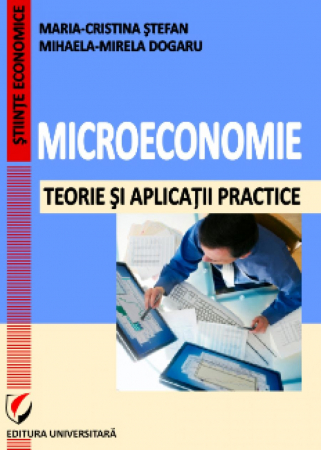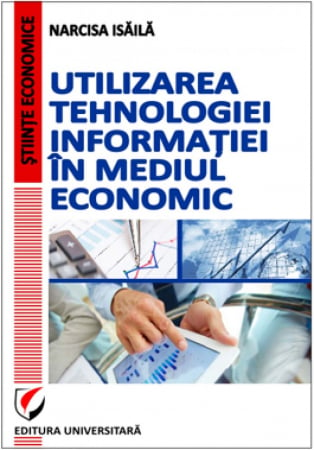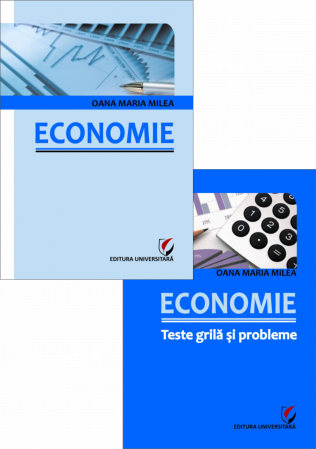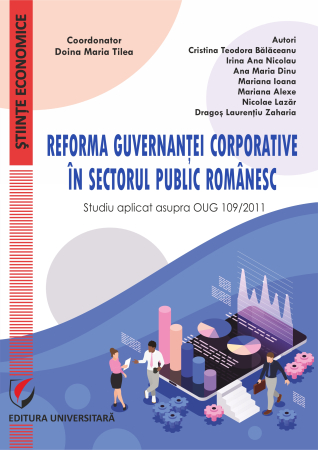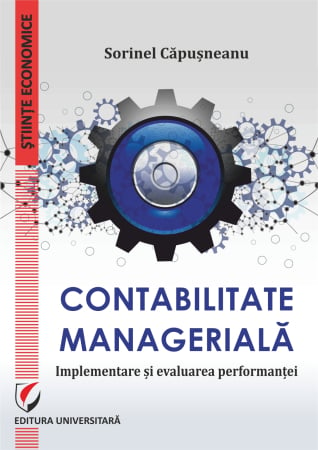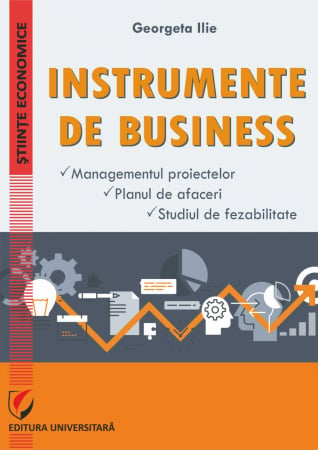ISBN: 978-973-749-531-0
Publisher year: 2009
Edition: I
Pages:
Publisher: Editura Universitară
Author: Jianu-Daniel Muresan
- Description
- Download (1)
- Authors
- Reviews (0)
Quality of life is a term that you encounter frequently today. The surface is easy enough to understand that when we talk about quality of life we mean how good is life. But when we dig a little deeper, we find that it is not always a simple matter to determine how "good" is life. A pretty good life or result from a variety of conditions that are interwoven in complex ways, in time and space of each individual existence.
To complicate the issue, which is considered to be a good life or the quality is often different for different individuals. It is evident that over the centuries and in different parts of the world, people have defined quality of their lives in various ways. Even in a time in a certain culture, groups and individuals analyze quality in specific ways and their life situations features.
In recent years, many researchers have attempted to clarify how to think about quality of life, and how to use it at work and in our lives. Considerable progress has been made but much work still needed. Many authors consider the quality of life as a concept is still in its infancy.
In fact, quality of life can not be defined, analyzed and evaluated properly until proper definition and understanding of life itself, to its joint.
Today, quality of life is most often understood as economic efficiency, in terms of excessive consumerism, physical beauty and pleasure, neglecting the deepest dimensions of existence, including the person, the soul and religion. Such a situation inevitably leads to a practical materialism, which culminates in individualism, utilitarianism and hedonism.
The essential quality that characterizes every human being is that was created in the image of the Creator himself. This level of dignity and quality belongs to the ontological order and is constitutive for the human person, to live every moment of life, from conception to natural death. Therefore one has to enjoy recognition and respect in any state of illness or disability would be.
Starting from the recognition of life and dignity of every person, society should promote, in collaboration with family and other institutions, intermediate care and respect for life to be possible a harmonious development of every human being, according to its natural capacity. All dimensions of the person - bodily, psychological, spiritual and / or moral - must be promoted in a balanced way. This implies the existence of social environmental conditions and ability to promote harmonious development.
Under pressure from rich companies is encouraged a vision of quality of life that is both reductive and selective, which is the ability to enjoy and experience pleasure, or even the ability to be aware of yourself and participate in the life social. As a consequence, any quality of life is denied to persons who are not yet or will never be able to express their intelligence and will, and those who can not enjoy life as a series of relationships and feelings.
Shortly after the start of research on quality of life, their substantiation need quality information gave rise to new directions of concern, the social indicators, namely the objective or subjective variables by which the quality of life can be put into quantitative equations .
Social indicators movement, which was the impetus to the development of means for assessing the quality of life in the 1960s, started from the observation that life in general has become more difficult although living standards have improved considerably.
Social indicators, objective look at in terms of quality of life in terms characterize individual resource availability, or subjectively, to characterize the quality of life through the satisfactions and individual desires.
Depending on the level of development of each country is to achieve national sets of indicators to be produced periodically institutionalized. The indicators depend on the degree of development of countries. Thus, while developing countries are mainly focused on poverty indicators in developed countries the focus is on indicators expressing the level and quality of investment in human capital, environmental protection, social protection, use of leisure time, safety etc. person.
Internationally coordinated identifies four key social indicators of development:
- Ensure a clear image on the human condition, social indicators exceed the scope of meeting basic needs (food, housing, clothing, etc..) Which can be restricted by the available resources of society, priority is now a qualitative approach to the basic components of quality of life;
- Providing data and information that can characterize the disadvantaged segments of the population;
- Social indicators should be support government policies and social programs;
- Need to identify new tools for analyzing and improving human development indicators.
We can say that the system of indicators of quality of life is not static but a perfect one, it being able to change depending on the phenomena that occurs at a time in society as a whole or within certain social groups, such as and in light of changing knowledge and understanding of the meaning of life and our microcosm.
In Romania, profound changes took place after the events of 1989, these mutations occurred in the economic, social, cultural. Had an impact (most times negative) on people's lives. In the current economic and political context nationally and internationally, once Romania joins the EU, and under the conditions stated willingness to integrate into European structures, increased quality of life for Romania is one of the first order, to achieve a level of civilization in accordance with own desires and European requirements.
This paper does not claim to cover the whole issue of quality of life. I tried to approach the concept of quality of life in theoretical and analytical, practical, seeking to avoid the trap of a narrow, one-sided, to get closer to the corolla broad, integrative, transdisciplinary.
The paper is structured into six chapters that you want to meet modern quality of life analysis and development of topics designed to complete the issues relating to the quality of life in Romania after 1989 years.
In the first chapter, entitled The importance of natural life-human evolution equation, noting that we can not define and analyze the quality of life without defining life itself, I tried to introduce in the context of integrating human life, that of all living life together. Man is a product of evolution ecosphere, which remains whole because its existence is inextricably linked to that of other living species and the entire shell of the planet. By using science and technology, man has become a dominant species in the ecosphere, could turn the environment, adapting it to his needs, while the other species the process is reversed, and certain species are adapting to the changing environment. Due to this situation, the man went under the laws of the struggle for existence with other species, as well as the action of biological intraspecific competition.
In the second chapter, the concept of quality of life, I made a presentation of the development concept, its many definitions, and we analyzed compared different methods of assessing the quality of life dimensions. An important place it occupies in this chapter present a key element of quality of life, namely health and life. Whatever the preferred definition, health is recognized as the most valuable asset of human life. It gives the substance of human life is accepted by everyone as an aspiration, because of its multiaxial and its realization requires accountability throughout society.
In the third chapter of the quality of life in Romania from the perspective of European integration, we conducted an analysis of what constitutes quality of life for civilized Europe, and its status in the EU and Romania. We used for this purpose, the data called "European Quality of Life Survey" (EQLS) conducted by the European Foundation for the Improvement of Living and Working Conditions, based in Dublin, Ireland. We also analyzed the main directions of improving the quality of life in Romania, which have their premises in Romania's National Development Plan (2006), and the National Strategic Reference (2007), documents the convergence achieved national development priorities with those established at European level.
In the fourth chapter, aspects of the evolution of quality of life in Romania after 1989, we studied the dynamics of the various dimensions of quality of life for Romania during post-December, using objective indicators, data and methodology of National Human Development Report (part of the United Nations Development) and the results of the "diagnosis quality of life", undertaken by the Quality of Life Research Institute (Bucharest), and Public Opinion Barometer (Open Society Foundation). The conclusion of this analysis is that artificial life has worsened most Romanians after 1989, dramatically decreasing its quality, a situation which lasted until the early 2000s, when economic growth amid indicators objectives and perception of quality of life have evolved positively .
The fifth chapter, the importance of quality of life in terms of human self, it is an argument for building a new ethic, whose central pillar should be just the concept of quality of life. Humanity has made a huge leap in the field instruments, the means, but now feels an acute crisis of meaning. Out of this crisis heterogeneous, with multiple sources, involves struggle with alienation, a concept respiritualizare about life, and therefore what is quality.
In the last chapter, the sixth, entitled Analysis of quality of life Ploiesti, we conducted a survey and critical support elements of perceived quality of life Ploiesti. Designed questionnaire (see Appendix 4), and applied in January 2008 on a sample of 800 people (representative of the adult population of Ploiesti), contains 27 questions that test the individual importance and satisfaction with the quality of the nine essential coordinates life: personal health, education own work, income, housing, biological sex, family relationships, natural environment and state of society. The study results may be one of the landmarks in the process of designing policies and strategies at local level.
-
Calitatea vieţii umane în România după 1989
Download

6359.png)
![Quality of human life in Romania after 1989 - Jianu-Daniel Muresan [1] Quality of human life in Romania after 1989 - Jianu-Daniel Muresan [1]](https://gomagcdn.ro/domains/editurauniversitara.ro/files/product/large/calitatea-vieii-umane-n-romnia-dup-1989-2492-333129.jpg)
